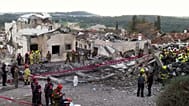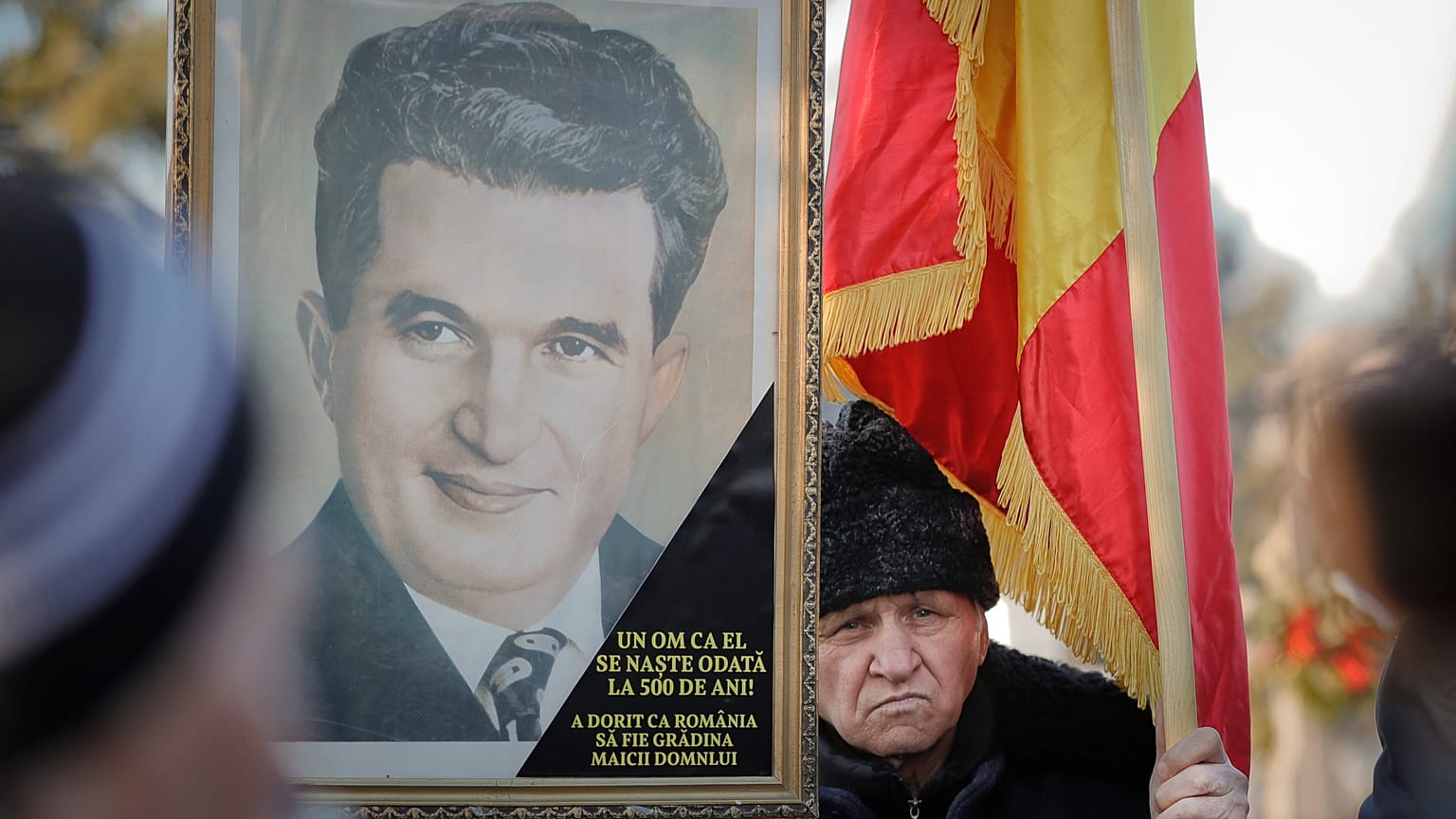Thirty years after the end of Nicolae Ceaușescu's regime, Romanians, like others in former Communist countries, show little trust in government institutions.
It is 30 years since Romania ousted communist dictator Nicolae Ceaușescu in a revolution that ended decades of communist rule in the country.
 ADVERTISEMENT
ADVERTISEMENT
 ADVERTISEMENT
ADVERTISEMENT
The dictator and his wife were killed by a firing squad on December 25, 1989, after days of a bloody national uprising.
A 2006 presidential commission report by anti-communist political scientist Vladimir Tismăneanu called the former system "inhuman".
"The Communist regime in Romania, a totalitarian system from its establishment until its collapse, was one based on the constant violation of human rights, on the supremacy of a hostile ideology to open society, on the monopoly of power exercised by a small group of individuals, on repression, intimidation and corruption," the report concluded.
The same month, President Traian Băsescu condemned Romania's communist regime, in a symbolic separation of the state from its past.
But how much has Romania separated from its past? And what is the legacy of Romania's communist regime? Euronews spoke with experts to find out.
Trust in government
"The communist legacy in the broader term is still there and is definitely going to be there for a while," said George Jiglău, a political scientist at Babeş-Bolyai University in Cluj-Napoca, Romania.
"In the entire region, we have issues that are visible when it comes for instance to relations between citizens and the state and how citizens perceive the state."
This is shown in opinion polls, Jiglău said, which consistently show that citizens have little trust in government.
A May 2019 Romanian survey found that 76.4% of Romanians think the country is heading in the wrong direction.
Romanians have low trust in government institutions: just 8.9% have confidence in political parties and just 9.8% have confidence in Parliament. The most trusted internal institutions, the INSCOP survey found, were the army and the church.
It's concerning that "the two key pillars of any representative democracy which are the parties and parliament have such low levels of trust", Jiglău said, though this is not limited to Romania.
It's this distrust, he added, that "actually fuels populism".
Policy analyst Sorin Ionita from Expert Forum in Bucharest agrees but pointed out that Romanians also have more trust in EU institutions.
"People in ex-communist countries appear consistently in surveys as more cynical and least trustful in their national institutions (with the exception of the army and the church)," Ionita said.
"By contrast, they show more trust in EU institutions," he said which can be attributed to an "aspiration" for good governance.
Romania also has a high rate of emigration — Romanians moving abroad — compared to other countries.
A recent OECD report found that 17% of the population moved abroad in 2015 and 2016. Romania had a higher emigration rate than Mexico, China and India.
This migration is due to a legacy "political culture" in which the state still does not recognise that it "provides a service" to the people, Jiglău said.
Legacy of Ceaușescu?
There is a lasting legacy from the previous regime, Ionita says, but it's not "communism" as one might think.
"There are legacies of the real regime of Nicolae Ceaușescu, a typical Balkan combination of nationalism, primitive socialism and territorial family clans, in which everything was negotiable, informal arrangements prevailed and no official institution or planning process worked properly," said Ionita.
But in terms of the current government, no one is going to nationalise property.
Rather under successive social democratic governments, the country has rolled back anti-corruption measures. Ionita says the Social Democratic Party (PSD) is not communist, but rather conservative, closer to populists.
But Romania's government recently switched hands after a vote of no confidence in October toppled the existing social democratic government.
The change came following anti-government protests in 2018 and the imprisonment of former party leader Liviu Dragnea who went to jail in May over corruption charges.
The re-elected liberal president Klaus Iohannis has promised to tackle corruption in the country and has a new prime minister from the same party.
Iohannis has also spoken out about holding people accountable for the communist regime as well as understanding what happened in the revolution - which remains a concern in the country.
"The expectation is to have people accountable for what happened during the revolution," said Jiglău, but that will not change the legacy which he says extends to the education sector and the healthcare system in subtle ways.
Only long term changes will shift the political culture of society, he added.
What do you think? Let us know in the comments below.














